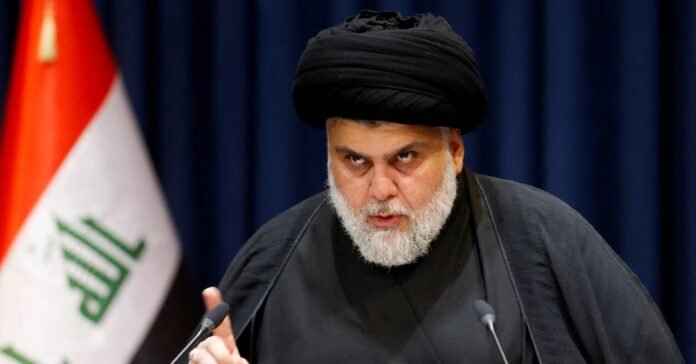With Iraq’s November elections approaching, Patriotic Shiite Movement leader Muqtada al-Sadr strongly addressed the assassination claim. Political rivals amplified tensions, and the assassination claim stirred the pre-election atmosphere.
Opposition activist Ali Fadel raised the claim on social media. He alleged that State of Law Coalition MP Yasser Al-Maliki planned a drone attack targeting al-Sadr near his father’s shrine. The report prompted Saraya al-Salam to deploy fighters in Basra, anticipating possible threats.
Al-Sadr appeared publicly at the shrine on Monday, accompanied by supporters and aides. He dismissed the assassination claim, saying it reflected “those who doubt their own results.” He accused rivals of destabilizing the country and warned that rumors could provoke unrest before the vote.
The leader also criticized “power-hungry elites” for prioritizing personal gain over Iraq’s democracy. He insisted his movement would not let threats intimidate them. Al-Sadr added that the people have grown more aware and will not reward failed politicians.
He further criticized government shortcomings, highlighting drought, pollution, electricity shortages, weak education, the deteriorating health sector, and the spread of armed groups. Al-Sadr emphasized that terrorism, extremism, normalization, and sectarianism threaten Iraq more than a return of Baathist influence.
Meanwhile, Yasser Al-Maliki rejected the assassination claim as “fabrications meant to stir strife.” He vowed to pursue legal action against anyone spreading such rumors.
The assassination claim has become the latest factor raising tension in Iraqi politics as elections approach. Al-Sadr and his supporters stressed election security and the public’s right to make informed choices. These statements brought the assassination claim into the spotlight again and energized the political scene.


